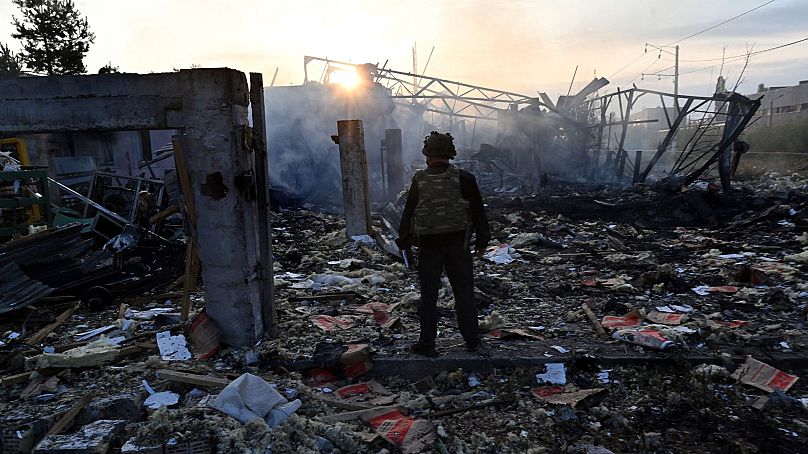Seven of the world’s strongest economies, including the US, are exploring how to tap the profits from frozen Russian assets to help Ukraine, ravaged by war.
Representatives of the G7, seven of the strongest economies in the world, issued a common statement at the World Bank-IMF conference in Marrakech, announcing that they would consider ways to spend proceeds from frozen Russian assets for Ukraine’s reconstruction.
 ADVERTISEMENT
ADVERTISEMENT
 ADVERTISEMENT
ADVERTISEMENT
“We will explore how any extraordinary revenues held by private entities stemming directly from immobilized Russian sovereign assets ... could be directed to support Ukraine and its recovery and reconstruction in compliance with applicable laws,” the statement said.
The move comes a day after US Treasury Secretary Janet Yellen said she supported “harnessing windfall proceeds from Russian sovereign assets immobilised in particular clearinghouses and using the funds to support Ukraine.”
Yellen voiced her support earlier in September earlier that Moscow should bear the costs of damage caused by its invasion of its neighbour.
The cost of the reconstruction of Ukraine
The damage in the war-torn country is estimated to be hundreds of billions of dollars - a sum that is growing every day.
A previous joint assessment by the Government of Ukraine, the World Bank Group, the European Commission and the United Nations, estimated that the cost of reconstruction and recovery in Ukraine grew to $411 billion (equivalent to €383 billion) in the year following Russia’s full-scale invasion on 24 February 2022.
This is 2.6 times the country’s estimated 2022 GDP.
The overall cost could rise to as high as $1 trillion, depending on how long the war lasts, its intensity, and its geographic spread, according to independent think tank Council on Foreign Relations.
How much of the costs could Russian assets cover?
Since the beginning of the war, Washington has confiscated assets used in criminal activity, but the assets in question are a different matter; the US and Western allies have frozen more than $300 billion in Russian central bank foreign currency assets through sanctions.
The governments holding these immobilised Russian assets are the ones whose taxpayers have been providing Ukraine with aid packages since the war has started.
The question of how to take Russia’s assets, however, is a delicate matter. Some European officials have called for their full seizure, but others have raised serious legal concerns.
The assets are legally under Russian ownership, however they are held abroad, with a significant portion in Europe and another at the Federal Reserve Bank of New York.
Europe wants G7 political support for imposing a windfall tax on €200 billion worth of Russian central bank assets in European banks, rather than confiscating the underlying assets themselves.
This solution is expected to yield €3 billion in windfall profits.
Belgium determined to step up
Of the €200 billion held in Europe, around €125 billion is managed by Belgian financial services firm Euroclear.
Belgium intends to go ahead and collect €2.3 billion in taxes on the Russian frozen assets and use them to help reconstruct Ukraine, a spokesperson for Belgium's prime minister said on Wednesday.
The European Commission said in July it would present a proposal on whether there was a legally sound way to use the funds once the G7 agreed to the measure in principle.
If the EU goes ahead with a formal proposal for the windfall option, it would require the backing of all member states before it could be adopted.











